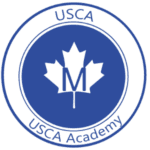
CPW4U Canadian and International Politics Course
| Course Type: | Academic |
| Credit Value: | 1.0 |
| Prerequisite: | Any university (U) or university/college (M) preparation course in social sciences and humanities, English, or Canadian or world studies. |
Course Description
Canadian and International Politics: This course explores various perspectives on issues in Canadian and world politics. Students will explore political decision making and ways in which individuals, stakeholder groups, and various institutions, including governments, multinational corporations, and non-governmental organizations, respond to and work to address domestic and international issues. Students will apply the concepts of political thinking and the political inquiry process to investigate issues, events, and developments of national and international political importance, and to develop and communicate informed opinions about them.
Outline of Course Content
Unit
Titles and Descriptions
Time and Sequence
Unit 1
Introduction to Politics
This course and unit begin with the topic, A Study of Politics, followed by an introduction to the basic concepts of political science. Students will spend some time on the concept of ideology and search out their own political ideology.
27 hours
Unit 2
Government and the Political Process
This unit begins with an examination of the forms of government and models of political processes. Students will then have a look at how roles in the political process function.
27 hours
Unit 3
Canada and the International Political System
Three significant topics are investigated in this unit: a system of sovereign states, Canada’s International Policy, and the role of non-governmental organizations in international affairs.
27 hours
Unit 4
Issues and Answers: National and International Politics in Practice
The unit begins by looking at the topic of national unity in Canada. From there Canadian and American relations are the topic of discussion followed by the serious issues involved in national and international security in the post 9/11 world. The reality of the politics of economic globalization will fascinate students as will the timely topic of environmental issues as they relate to world politics. The unit concludes with the topic of human rights at home and abroad.
26 hours
Unit 5
Exam
This is a proctored exam worth 30% of the final grade.
3 hours
Total
110 hours
The Canadian and World Studies courses prepare students for a life of responsible citizenship in which they think critically about events, developments and issues in their daily lives. In the Politics courses, the goal is to help students develop a sense of responsibility. At their own pace, students will work towards:
- developing an understanding of how to influence change within the diverse communities to which they belong, and of how individuals and groups can participate in action that promotes change;
- analyzing current political issues, and assessing methods and processes that can be used to influence relevant political systems to act for the common good;
- assessing the power and influence of different people involved in civic issues, using political perspective;
- developing a respect and appreciation for different points of view on various political issues.
Assessment and evaluation will follow the Ministry of Education’s Growing Success document. Assessment is a systematic process of collecting information or evidence about a student’s progress towards meeting the learning expectations. Assessment is embedded in the instructional activities throughout a unit. The expectations for the assessment tasks are clearly articulated and the learning activity is planned to make that demonstration possible. This process of beginning with the end in mind helps to keep focus on the expectations of the course. The purpose of assessment is to gather the data or evidence and to provide meaningful feedback to the student about how to improve or sustain the performance in the course. Scaled criteria designed as rubrics are often used to help the student to recognize their level of achievement and to provide guidance on how to achieve the next level. Although assessment information can be gathered from a number of sources (the student himself, the student’s course mates, the teacher), evaluation is the responsibility of only the teacher. For evaluation is the process of making a judgment about the assessment information and determining the percentage grade or level.
The assessment will be based on the following processes that take place in the classroom:
| Assessment FOR Learning | Assessment AS Learning | Assessment OF Learning |
|---|---|---|
During this process the teacher seeks information from the students in order to decide where the learners are and where they need to go. | During this process the teacher fosters the capacity of the students and establishes individual goals for success with each one of them. | During this process the teacher reports student’s results in accordance to established criteria to inform how well students are learning. |
| Conversation | Conversation | Conversation |
Classroom discussion Self-evaluation Peer assessment | Classroom discussion Small group discussion Post-lab conferences | Presentations of research Debates |
| Observation | Observation | Observation |
| Drama workshops (taking direction) Steps in problem solving | Group discussions | Presentations Group Presentations |
| Student Products | Student Products | Student Products |
| Reflection journals (to be kept throughout the duration of the course) Check Lists Success Criteria | Practice sheets Socrative quizzes | Projects Poster presentations Tests In Class Presentations |
Some of the approaches to teaching/learning include
Strategy | Who | Assessment Tool |
Class discussion | Teacher | Observation Checklist |
Response Journal | Teacher | Anecdotal Comments |
Student Chosen Song | Teacher | Observation Checklist |
Narrative Poem/Song | Teacher | Rubric and Anecdotal Comments |
Character Sketch | Self | Checklist |
Journal Responses | Self/teacher | Anecdotal comments |
Short Story Analysis | Teacher | Rating scale |
Short Story Outline | Teacher | Rating scale |
Anecdote | Teacher | Direct Observation |
Found poem | Teacher | Direct Observation |
Journal Entries | Teacher | Anecdotal |
Research Notes | Self/Teacher | Checklist |
Non-fiction Report/Presentation | Teacher | Rubric |
Presentation to group | Self/Peer | Self and peer assessment rubric |
Sight passage | Teacher | Marking scheme |
Narrative piece | Teacher | Rubric |
The evaluation of this course is based on the four Ministry of Education achievement categories of knowledge and understanding (25%), thinking (25%), communication (25%), and application (25%). . The evaluation for this course is based on the student’s achievement of curriculum expectations and the demonstrated skills required for effective learning.
The percentage grade represents the quality of the student’s overall achievement of the expectations for the course and reflects the corresponding level of achievement as described in the achievement chart for the discipline.
A credit is granted and recorded for this course if the student’s grade is 50% or higher. The final grade for this course will be determined as follows:
- 70% of the grade will be based upon evaluations conducted throughout the course. This portion of the grade will reflect the student’s most consistent level of achievement throughout the course, although special consideration will be given to more recent evidence of
- 30% of the grade will be based on final evaluations administered at the end of the course. The final assessment may be a final exam, a final project, or a combination of both an exam.
Frequently Asked Questions (FAQ)
Explore Canadian and global political issues, examining government roles and international relations.
Ideal for students interested in social sciences and humanities, focusing on political systems and global affairs.
Students must have completed a university (U) or university/college (M) preparation course in social sciences and humanities, English, or Canadian or world studies.
Prepares students for careers in government, diplomacy, international relations, or further studies in political science.
Encourages students to analyze and participate in political processes, fostering informed citizenship and critical thinking.
